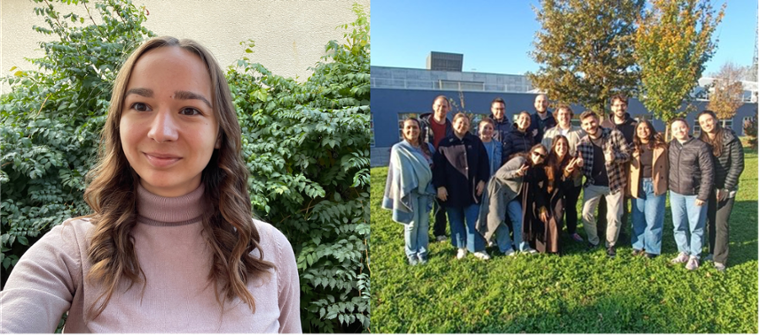Between May 12 and 13, 2025, the
Young Leaders Academy (YLA) fellows at Babeș-Bolyai University (UBB), with the support of both EUTOPIA and UBB, organised a forward-looking event titled “AI in Higher Education: Opportunities and Challenges.” The initiative brought together academic voices from across disciplines and institutions to explore the transformative role of artificial intelligence in academia.
The two-day event opened with a compelling keynote address by Dr. Nompilo Tshuma, YLA fellow and Senior Researcher and Lecturer at Stellenbosch University, a member of the EUTOPIA Global Partners network. Dr. Tshuma’s presentation delved into the complex interplay between generative AI technologies and postgraduate education, posing critical questions about identity formation and scholarly development in an AI-enhanced academic environment. Her address offered participants a rich perspective on how large language models (LLMs) are reshaping pedagogical practices, research outputs, and the expectations placed upon both students and educators.
The conference continued with insightful contributions from UBB scholars actively engaged in developing AI-integrated teaching strategies. Dr. Vlad Popovici, from the Faculty of History and Philosophy, discussed emerging institutional efforts to establish clear, adaptable guidelines for the use of AI in academic contexts. His talk emphasised the importance of transparency and consistency, particularly noting that instructors who incorporate AI into their teaching practices set a precedent that should inform student engagement with the same tools.
From a technical perspective, Dr. Alina Delia Călin of the Faculty of Mathematics and Computer Science advocated for a critical approach to AI integration in student learning. Drawing parallels to performance evaluations in professional settings, she proposed a structured framework for assessing the educational value of AI use—particularly in coding and problem-solving tasks—to ensure that it genuinely supports cognitive development rather than short-circuiting the learning process.
While acknowledging the ethical and practical challenges still surrounding AI, the event underscored that its presence in higher education is both substantial and irreversible. The integration of AI is no longer speculative—it is a defining feature of modern academic practice.
The event concluded with a hands-on workshop led by Dr. Răzvan Florian of the Romanian Institute of Science and Technology. His training session offered participants a lucid and engaging overview of foundational AI concepts, followed by an exploration of cutting-edge applications in academic research. Drawing on recent findings—such as a 2024 Nature study on AI’s growing role in scholarly work—Dr. Florian illustrated the rapid expansion of AI across STEM fields and its emerging relevance within the humanities and social sciences.
This event reflects UBB’s commitment to academic innovation and the responsible integration of emerging technologies into teaching and research. It also exemplifies the collaborative ethos of the EUTOPIA alliance, fostering critical dialogue and shared strategies for navigating the evolving landscape of higher education.
(This text was partially improved through the use of AI)

